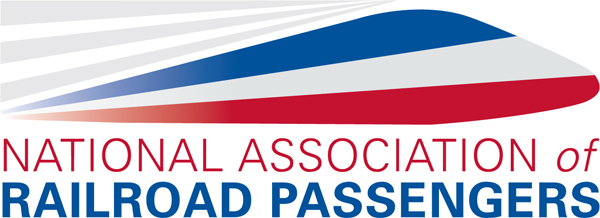As Airlines Raise Fees, Their Subsidy Advantage over Trains Grows
October 23, 2012
Written By Malcolm Kenton
Experienced passenger train advocates are already familiar with the ways in which both federal and state governments subsidize air travel. But as the Washington Post revealed on Friday, airlines’ increasing reliance on increasing fees for things like checked baggage, instead of raising ticket fares, to keep up with the rising cost of jet fuel, means that federal taxpayers are being asked to pitch in even more to keep the aviation system running.
The bulk of the Federal Aviation Administration’s funding comes from the Airport and Airway Trust Fund, which is funded by taxes on airline tickets sold to passengers (as well as fees levied on airlines per flight segment, on air cargo waybills, flights arriving from other countries, and a tax on general aviation fuels).
FAA uses these funds to operate and improve the air traffic control system, perform research and development on aviation safety, mobility and environmental impact, and provide grants to airport authorities for construction and improvements to airports.
Additionally, a large chunk of the funding for airport facilities comes from local, regional and state governments by way of airport authorities, which are agencies formed by either a single local government or a compact among multiple local governments. Airport authorities, in most cases, own and manage airports, and establish policies for the airport’s development.
While Congress has become accustomed to using general tax revenues to keep the Highway Trust Fund solvent while refusing to raise the gasoline tax, even to keep up with inflation, airlines’ practice of shifting some of their revenues from fares to fees, which are not taxed, means an increase in the extent the general fund is being tapped to fund the FAA as well. From the Post:
"In both fiscal 2009 and 2010, Congress appropriated an additional amount of almost $1 billion.
When the airlines kept ticket prices down by shifting $12.8 billion to baggage fees, they also saved almost $964 million in federal taxes they would have owed if they had hiked ticket prices by that amount."
That $1 billion is almost equal to Amtrak’s annual federal grant, and it’s only a small portion of the federal largesse that air travelers enjoy.
On top of that, part of the FAA’s mandate, established under the Eisenhower administration, is to promote and advocate air travel. The Federal Railroad Administration, on the other hand, has no similar authority when it comes to train travel. This means that the airlines, in essence, have a federal agency that actively pursues their interests. The FRA only advocates train travel insofar as its current leadership supports doing so.
Train travel advocates still have a lot of work ahead of us, and it begins with increasing the public’s awareness of a transportation playing field that is tilted away from rail—an environment in which Amtrak does amazingly well. To that end, please share this post and other information from NARP’s website with people you know.
